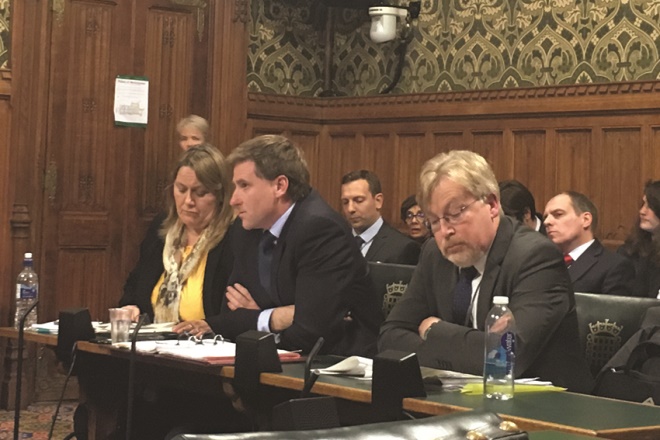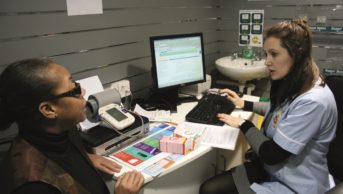
MAG / The Pharmaceutical Journal
Minor ailments schemes across England are transitioning to more digitally led services, the chief pharmaceutical officer (CPO) Keith Ridge has said.
Speaking at a meeting of the All Party Pharmacy Group (APPG) in Westminster on Monday 30 October, Ridge acknowledged that clinical commissioning groups (CCGs) were beginning to decommission minor ailments schemes, saying “things have moved on.”
He was responding to a question by Labour MP Paula Sherriff who reminded him and pharmacy minister Steve Brine, who was also at the meeting, that in 2016 ministers had committed to encourage every CCG in England to commission a minor ailments scheme to help relieve pressures on the NHS. She added that there were now fewer than ever.
Ridge said the transition was happening for a number of reasons including the NHS urgent medicine supply scheme (NUMSAS), currently being piloted, and NHS England’s recent consultation on whether certain OTC medicines should continue to be dispensed.

Source: Katie Osborne
Chief pharmaceutical officer Keith Ridge, right, speaking to the All Party Pharmacy Group at Westminster, with pharmacy minister Steve Brine and head of pharmacy at the department of health, Jeanette Howe
“It seems to me that both these things are going to markedly impact minor ailments schemes,” Ridge told the APPG.
Chief Executive of the Pharmacy Services Negotiating Committee (PSNC), Sue Sharpe, said she was disappointed about the “apparent complete reversal of the minor ailments scheme”.
She said: “A year ago the then minister said he would come back and hold himself to account. Now we are told that things have ‘moved on’.”
She questioned why the NHS would take on the ‘extra cost’ of pushing people through the NHS 111 referrals system when there were 11,600 community pharmacists who could be approached directly.
On other matters, Brine told the APPG he was proud of his swift response to the PSNC’s request last month to increase the advance payment made to community pharmacists for prescription items by 15p, adding that he had been trying very hard to ‘reset’ the government’s relationship with the profession.
He also repeated his promise to lay decriminalisation legislation before Parliament by Christmas, saying the Community Pharmacy Dispensing Errors Order, had now received cross-government support.
And he said it was unacceptable that the level of engagement between community pharmacy and sustainability and transformation plans (STPs) was so ‘sketchy’, saying he expected to see an improvement.
“STPs are very, very central to our plans for an efficient modern NHS as are community pharmacies,” he said. “If you don’t bring the two together you are missing a trick and I don’t like missing tricks”
Brine added that MPs had a greater role to play in encouraging STP leaders in their constituencies to engage more with community pharmacists.
Speaking after the meeting, head of the Royal Pharmaceutical Society’s English Pharmacy Board, Sandra Gidley, said: “I feel very frustrated. I think it’s clear to me that Steve Brine wants to make use of pharmacists in the community pharmacy sector, but there’s been so little progress and there was a dearth of ideas from the table about how pharmacy can help with some of the pressures.
“When you consider they didn’t even talk about community pharmacy taking on case loads of patients from a medical practitioner if they are stable, and no talk about community pharmacy prescribing. We were thrown these little nuggets but it’s not enough. If the minister is frustrated and the chief pharmaceutical officer is satisfied, hence my frustration — because there’s so much potential and we should be doing so much more.”


